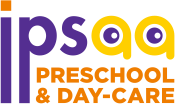The early years of a child’s life are a time of rapid growth and development, laying the foundation for their future well-being. Choosing the right educational environment during this critical period is crucial, and playschools have emerged as a popular option for parents seeking a holistic approach to early childhood education. In this blog, we will delve into the myriad benefits of enrolling your child in a playschool near you, exploring how these institutions contribute to the physical, social, emotional, and cognitive development of young minds.
1. Social Development: Building Foundations for Interpersonal Skills
Playschools provide an early introduction to socialization, a fundamental aspect of a child’s development. In a playschool setting, children learn to interact with peers, share, take turns, and communicate effectively. The structured yet nurturing environment of a playschool lays the groundwork for the development of essential interpersonal skills that are crucial throughout life.
Activities that Foster Social Development:
- Group Play and Games: Engaging in group activities encourages cooperation and teamwork.
- Circle Time: Activities like storytelling and singing songs during circle time promote listening skills and a sense of community.
- Free Play: Unstructured playtime allows children to explore and develop social skills independently.
2. Emotional Well-being: Nurturing a Positive Self-Image
Playschools play a pivotal role in nurturing emotional intelligence by providing a supportive and caring environment. The transition from home to school can be emotional for young children, and playschools focus on creating a secure atmosphere that fosters a positive self-image and emotional resilience.
Components of Emotional Well-being in Playschools:
- Caring Teachers: Trained educators provide emotional support, helping children navigate their feelings.
- Routine and Consistency: Establishing a predictable routine contributes to a sense of security.
- Expression of Emotions: Through art, play, and verbal expression, children learn healthy ways to convey their emotions.
3. Cognitive Development: Igniting Curiosity and Love for Learning
Playschools are designed to stimulate a child’s cognitive development by providing a variety of age-appropriate activities that encourage exploration, curiosity, and critical thinking. These early educational experiences set the stage for a lifelong love of learning.
Cognitive Development Initiatives in Playschools:
- Educational Play Materials: Exposure to educational toys and materials enhances cognitive skills such as problem-solving and spatial awareness.
- Hands-on Learning: Activities like arts and crafts, puzzles, and science experiments engage multiple senses, promoting cognitive development.
- Early Literacy and Numeracy: Introduction to basic concepts of literacy and numeracy through games and interactive activities.
4. Language Development: Fostering Communication Skills
Playschools provide an ideal environment for language development, as children are exposed to a rich linguistic environment that encourages verbal communication, vocabulary expansion, and the development of early literacy skills.
Language Development Strategies in Playschools:
- Storytelling Sessions: Regular storytelling sessions enhance language comprehension and imagination.
- Singing and Rhyming: Music and rhymes contribute to language development and phonemic awareness.
- Conversational Opportunities: Interaction with peers and teachers provides ample opportunities for language practice and refinement.
5. Motor Skills: Fine-Tuning Physical Abilities
Playschools recognize the importance of refining both gross and fine motor skills in early childhood. Activities that involve movement, coordination, and manipulation of objects contribute to the overall physical development of a child.
Motor Skills Development in Playschools:
- Outdoor Play: Playground activities, such as climbing, running, and swinging, enhance gross motor skills.
- Art and Craft: Engaging in activities like cutting, pasting, and drawing hones fine motor skills.
- Sensory Play: Exploring textures and materials through sensory play contributes to tactile development.
6. Preparation for Formal Education: Smooth Transition to School Life
Playschools serve as a valuable stepping stone for children, preparing them for the transition to formal education. The structured routines, exposure to basic academic concepts, and development of essential skills equip children with the tools they need to thrive in a school environment.
Transition Strategies in Playschools:
- Introduction to Classroom Etiquette: Learning basic classroom rules and routines prepares children for school life.
- Early Exposure to Learning Concepts: Introduction to letters, numbers, and basic concepts helps ease the academic transition.
- Independence Building: Encouraging self-help skills, such as putting on shoes and jackets, fosters independence.
7. Parental Involvement: Building a Supportive Community
Playschools often encourage parental involvement, recognizing the importance of a collaborative approach to a child’s development. Parent-teacher interactions, workshops, and events create a sense of community and support for both children and their families.
Ways Playschools Facilitate Parental Involvement:
- Parent-Teacher Meetings: Regular meetings provide updates on a child’s progress and allow for open communication.
- Workshops and Seminars: Educational sessions for parents on child development topics enhance their understanding and support.
- Family Events: Involving families in playschool events fosters a sense of community and shared experience.
8. Cultural and Creative Exposure: Celebrating Diversity
Playschools often celebrate diversity and introduce children to various cultures, traditions, and creative expressions. Exposure to a variety of experiences broadens a child’s worldview and promotes acceptance and understanding.
Cultural and Creative Elements in Playschools:
- Multicultural Activities: Celebrating festivals, traditions, and customs from different cultures creates a rich and inclusive environment.
- Art and Creativity: Encouraging creative expression through art, music, and drama enhances a child’s imagination and self-expression.
Conclusion
Enrolling your child in a playschool near you is a proactive step towards providing them with a well-rounded foundation for future success. The comprehensive benefits of playschools, encompassing social, emotional, cognitive, and physical development, contribute to a child’s holistic growth during their formative years. Playschools not only prepare children for the academic challenges ahead but also instill a love for learning, creativity, and social interaction that will benefit them throughout their lives. As parents, the decision to enroll your child in a playschool is an investment in their future, unlocking their potential and setting the stage for a lifetime of learning and achievement.


